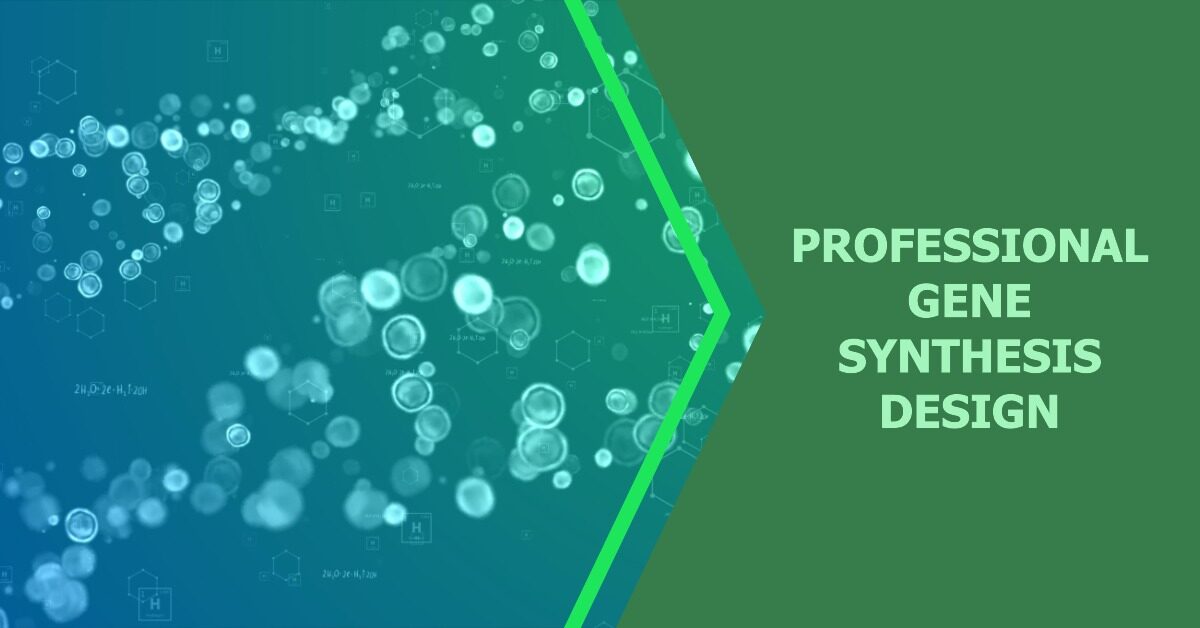The field of biotechnology has undergone immense transformation over the years, ushering in groundbreaking advancements that have revolutionized various industries. Among these innovations, gene synthesis stands out as a pivotal technology, reshaping the landscape of molecular biology and offering unprecedented opportunities for scientific exploration and commercial applications.
Introduction
Gene synthesis, a process involving the artificial creation of genes through chemical techniques, has emerged as a cornerstone of modern biotechnology. By assembling nucleotides in a precise sequence, scientists can synthesize DNA sequences that mimic natural genes or engineer custom sequences tailored for specific purposes. This capability to construct genetic material with precision and accuracy has unlocked a myriad of possibilities across diverse sectors, including pharmaceuticals, agriculture, and biomedicine.
The global gene synthesis market is expected to gain market growth in the forecast period of 2022 to 2029. Data Bridge Market Research analyses that the market is growing with a CAGR of 22.9% in the forecast period of 2022 to 2029 and is expected to reach USD 9,121.31 million by 2029 from USD 1,726.26 million in 2021.
Market Trends
The gene synthesis market has witnessed remarkable growth, marked by several notable trends shaping its trajectory. One such trend is the increasing adoption of automated platforms and high-throughput methodologies, enabling faster and more cost-effective gene synthesis. These advancements have streamlined the process, making it more accessible to researchers and industries alike.
The ability to engineer customized DNA sequences tailored to individual patients holds immense promise for treating genetic disorders and various diseases, propelling the market towards therapeutic avenues.
For more details, visit @ https://www.databridgemarketresearch.com/reports/global-gene-synthesis-market
The demand for gene synthesis has been steadily increasing over the years due to advancements in biotechnology, genetic engineering, synthetic biology, and various research fields. Gene synthesis involves creating artificial genes by assembling nucleotides in a specific order to produce custom DNA sequences.
This technology enables scientists to design, modify, and engineer DNA for various applications, including:
- Biomedical Research: Gene synthesis is crucial for studying gene function, protein expression, and disease mechanisms. Researchers use synthetic genes to investigate genetic disorders, develop new therapies, and understand biological processes.
- Biopharmaceuticals: The development of novel biopharmaceuticals, such as vaccines, antibodies, and personalized medicine, often relies on gene synthesis to design and produce therapeutic proteins.
- Industrial Applications: Gene synthesis is utilized in industrial biotechnology for creating enzymes, biochemicals, biofuels, and other bioproducts, contributing to sustainable manufacturing processes.
- Agriculture: Synthetic genes are used in agricultural biotechnology to engineer crops with desirable traits, such as increased yield, pest resistance, or nutritional enhancements.
- Diagnostic Tools: Custom-made DNA sequences aid in developing diagnostic tools, like DNA probes and molecular assays, for detecting diseases and identifying specific genetic markers.
The demand for gene synthesis services is driven by the increasing need for tailored DNA sequences that are not readily available in nature. As technology continues to advance and become more accessible, the demand for gene synthesis is expected to grow across various scientific and commercial sectors. Additionally, cost reductions and improvements in synthesis efficiency have further fueled the expansion of applications and demand for these services.
Factors Driving Growth
Several factors contribute to the accelerated growth of the gene synthesis industry. Technological advancements play a pivotal role, driving innovation and enhancing the efficiency and accuracy of gene synthesis processes. The continuous development of novel synthesis methods.
The potential to develop personalized treatments based on an individual’s genetic makeup. The attracted substantial attention from pharmaceutical companies and healthcare providers, propelling the demand for gene synthesis services.
The process of gene synthesis typically involves these steps:
Oligonucleotide Synthesis: Short, custom-made DNA sequences called oligonucleotides are synthesized. These oligos are small fragments of the desired gene sequence, usually around 50-200 nucleotides in length.
Verification: The assembled DNA fragments are checked for accuracy and correctness through sequencing and other quality control methods.
Gene synthesis has various applications across multiple fields:
- Biomedical Research: Creating custom DNA sequences for studying gene functions, genetic diseases, or developing therapeutic interventions like gene therapy.
- Industrial Applications: Engineering microbes to produce pharmaceuticals, biofuels, enzymes, or other valuable compounds.
- Vaccine Development: Designing and producing synthetic genes for vaccine development against various diseases.
Here are some key points regarding the growth of gene synthesis:
- Technological Advancements: Progress in DNA synthesis technologies has enabled faster and more cost-effective methods for synthesizing genes. Innovations in synthesis platforms, such as using microarrays or solid-phase synthesis, have increased the speed and accuracy of gene assembly.
- Decreasing Costs: The cost of gene synthesis has declined dramatically over time. This reduction in cost has made gene synthesis more accessible to researchers, allowing them to pursue projects that were previously financially prohibitive.
- Customization and Design: Gene synthesis offers the ability to design and customize genes according to specific requirements. This flexibility is particularly valuable in synthetic biology, genetic engineering, and biotechnology applications. Allowing scientists to create novel genes or modify existing ones for various purposes.
- Research and Development: Gene synthesis has fueled significant research and development across multiple domains, including pharmaceuticals, agriculture, biotechnology, and healthcare. It has facilitated advancements in fields such as gene therapy, vaccine development, creation of recombinant proteins, and synthetic biology.
- Automation and Scale-up: Automation in gene synthesis processes has increased throughput and reduced error rates. High-throughput synthesis platforms enable the synthesis of multiple genes simultaneously, further driving down costs and increasing efficiency.
- Emerging Markets and Industries: The expanding fields of synthetic biology, metabolic engineering, and genome editing rely heavily on gene synthesis. This has led to the emergence of new markets and industries focusing on tailored genetic solutions.
- Regulatory Considerations: As gene synthesis becomes more commonplace, regulatory frameworks governing gene synthesis. Especially concerning biosecurity and ethical considerations, have evolved and will continue to be areas of focus.
For more article https://www.techbloggingworld.com/
